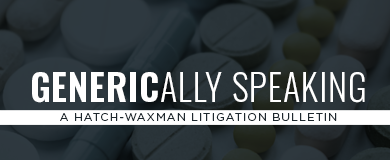- Acumen Powered by Robins Kaplan LLP®
- American Indian Law and Policy
- Antitrust and Trade Regulation
- Appellate Advocacy and Guidance
- Business Litigation
- Civil Rights and Police Misconduct
- Class Action Litigation
- Commercial/Project Finance and Real Estate
- Corporate Governance and Special Situations
- Corporate Restructuring and Bankruptcy
- Domestic and International Arbitration
- Entertainment and Media Litigation
- Health Care Litigation
- Insurance and Catastrophic Loss
- Intellectual Property and Technology Litigation
- Mass Tort Attorneys
- Medical Malpractice Attorneys
- Personal Injury Attorneys
- Telecommunications Litigation and Arbitration
- Wealth Planning, Administration, and Fiduciary Disputes
Acumen Powered by Robins Kaplan LLP®
Ediscovery, Applied Science and Economics, and Litigation Support Solutions
-
July 22, 2024Seven Robins Kaplan Attorneys Named to Minnesota Lawyer’s Power 30: Personal Injury List
-
July 18, 2024Emily Niles Named to Law360’s Top Attorneys Under 40
-
July 16, 2024David Martinez Named To 2024 Leaders of Influence: Litigators & Trial Attorneys by Los Angeles Business Journal
-
August 6, 2024Identifying Opportunities: Affirmative Recovery Strategies
-
August 15, 2024Annual Robins Kaplan MAJ Welcome Reception
-
October 20, 2024License Agreement Disputes:
-
July 24, 2024Navigating Copyright Act Section 117 in Software Licensing and Litigation
-
Second QuarterGENERICally Speaking: A Hatch-Waxman Litigation Bulletin
-
July 15, 2024Making The Whole Truth Public
-
September 16, 2022Uber Company Systems Compromised by Widespread Cyber Hack
-
September 15, 2022US Averts Rail Workers Strike With Last-Minute Tentative Deal
-
September 14, 2022Hotter-Than-Expected August Inflation Prompts Massive Wall Street Selloff
Find additional firm contact information for press inquiries.
Find resources to help navigate legal and business complexities.
Acadia Pharms. Inc. v. Aurobindo Pharma Ltd.
Nuplazid® (pimavanserin tartrate)
December 13, 2023

Case Name: Acadia Pharms. Inc. v. Aurobindo Pharma Ltd., No. 20-985-GBW, 2023 WL 8622048 (D. Del. Dec. 13, 2023) (Williams, J.)
Drug Product and Patent(s)-in-Suit: Nuplazid® (pimavanserin tartrate); U.S. Patent No. 7,601,740 (“the ’740 patent”)
Nature of the Case and Issue(s) Presented: The only disputed issue was the validity of claim 26 of the ’740 patent, which recited a tartrate salt of pimavanserin. The ’740 patent issued on October 13, 2009, from U.S. Patent Application No. 10/759,561 (“the ’561 application”), which was filed January 15, 2004. The USPTO calculated 980 days of patent term adjustment (“PTA”) for the ’740 patent. The ’740 patent also received a 1,315-day patent term extension (“PTE”) for FDA delay.
Defendant argued that claim 5 of U.S. Patent 9,566,271 (“the ’271 patent”)—that recited a method for treating hallucinations by administering the tartrate salt of pimavanserin—rendered claim 26 of the ’740 patent invalid for obvious-type double patenting (“OTDP”). The ’271 patent issued from U.S. Patent Application No. 11/416,527 (“the ’527 application”), filed on May 3, 2006. The ’527 application initially was a continuation of the ’561 application. During prosecution, on July 1, 2009, Acadia changed the ’527 application to a divisional of the ’561 application. The ’271 patent issued on February 14, 2017, and expires on January 15, 2024. The parties cross moved for summary judgment. The court granted Acadia’s summary judgment motion.
Why Acadia Prevailed: The parties disputed the proper interpretation of 35 U.S.C. § 121. That statute creates a safe harbor—for a parent application and its divisional application claiming overlapping subject matter—to protect from OTDP. The court framed the issue as follows: “whether the language in § 121, which requires the divisional patent be filed ‘before the issuance of the patent on the other application’ and ‘as a result’ of a restriction requirement, applies when the challenged patent is the original patent, not the divisional patent”?
Arcadia argued that § 121 discusses two types of reference patents: (i) a patent issuing on an application with respect to which a requirement for restriction has been made; and (ii) a patent issuing on an application filed as a result of such a requirement. Conversely, MSN argued that “the divisional application” refers to the reference patent, which is “filed as a result of a restriction requirement.” In other words, § 121 applies only when the reference patent is filed as a result of a restriction requirement “before the issuance of the patent on the other application.”
The court explained that the best guidance on § 121 was a Federal Circuit decision stating that the statute was meant to “shelter[] from attack a divisional application or … the original application or any patent issued on either of them, if the divisional application is filed before the issuance of the patent on the other application.” Based on that dicta, the court agreed with Acadia’s interpretation that the “divisional application” that must be filed pre-issuance is a challenged patent, not a reference patent. The court found that the ’271 patent was filed “as a result of” the original ’740 patent. For this reason, the ’740 patent was not invalid for OTDP.
Related Publications
Related News
If you are interested in having us represent you, you should call us so we can determine whether the matter is one for which we are willing or able to accept professional responsibility. We will not make this determination by e-mail communication. The telephone numbers and addresses for our offices are listed on this page. We reserve the right to decline any representation. We may be required to decline representation if it would create a conflict of interest with our other clients.
By accepting these terms, you are confirming that you have read and understood this important notice.
